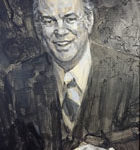
My professional life has been committed to Christian education and ministry, both in academic and church contexts. I have high regard for both contexts and believe they, at their best, complement each other. There is, and always has been, some tension between some of the advocates relating themselves to each context. If the situations were sifted out for many advocates they would not be exclusive to a preferred context. Scripture advocates education on both the level of nature (creation, either from God or mystery evolvement) and super-nature (also from God or mystery evolvement). We begin with sources, and gather evidence that leads to understanding, with understanding leading to wisdom. Wisdom is, in the final analysis, that which leads to problem… Read more





